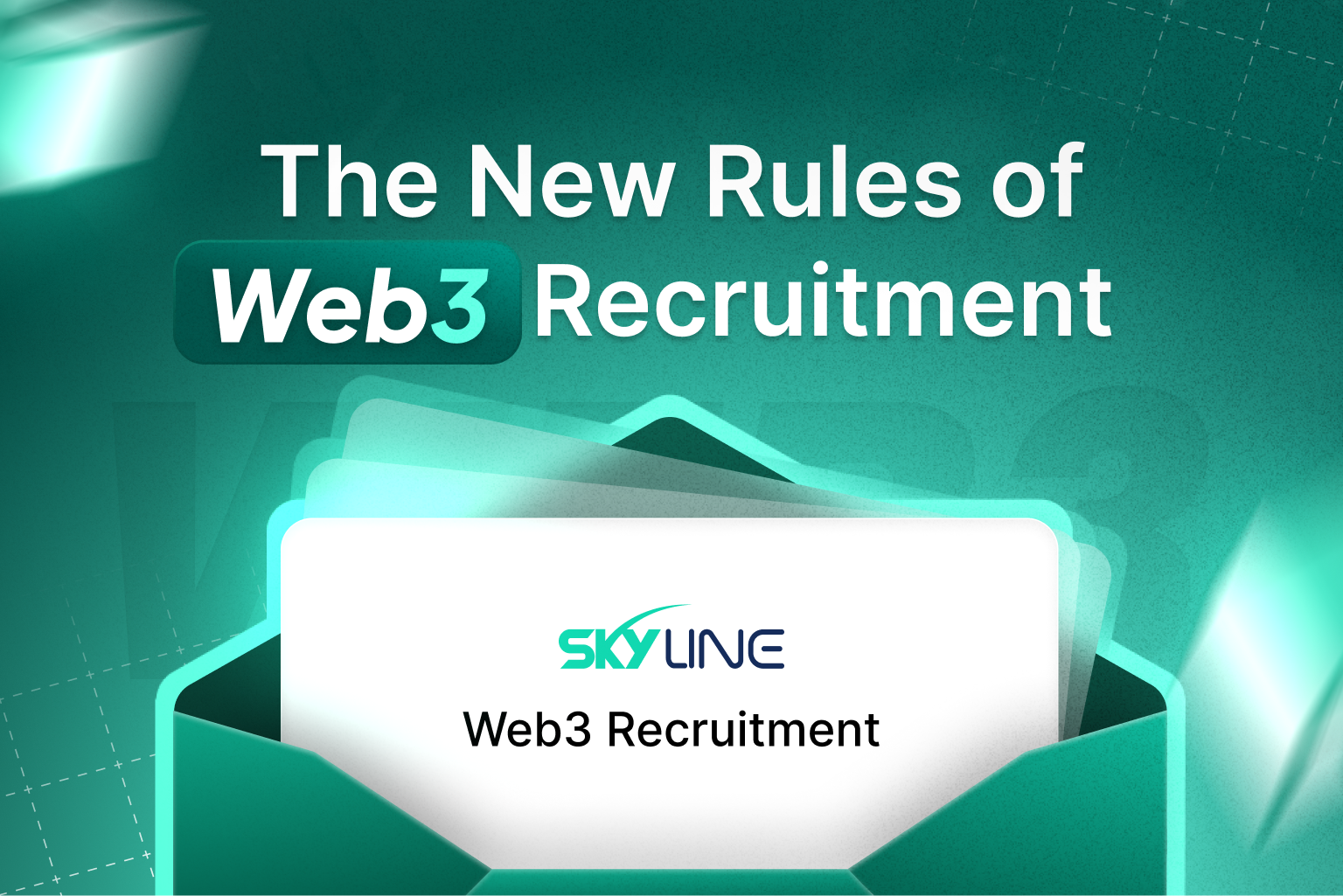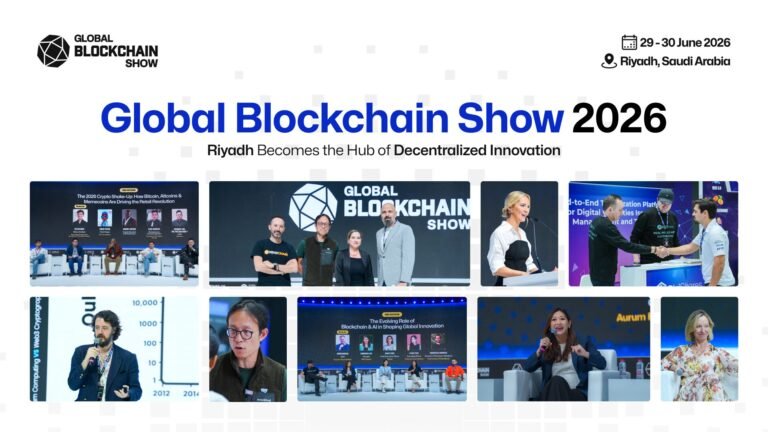Hiring in Web2 usually focused on filling the chairs. The success metric was, too often, how many people were brought in, not how well they fit.
But as the internet moves towards Web3, companies have a new reality. They now have to switch to a decentralized approach, which is a big shift from how they conduct their hiring process in Web2.
In Web3 recruitment, there is a need for flexibility, cross-functional expertise, and cultural fit. While Web2 prioritizes filling positions, Web3 emphasizes the importance of creating agile teams–those that can keep pace with the continuous change in the new era of the Internet.
Table of Contents
ToggleWhy Old Models of Hiring No Longer Work
Quantity Does Not Equal Quality
With a larger team in Web2 came more resources and credibility. However, from Web3’s perspective, hiring more people will create more inefficiency, especially if they’re not fit for the role.
This is especially true in a space where opportunities can vanish overnight. If teams are smaller and made up only of people who are actually fit for their position, they’ll be able to come up with better decisions. They’re also most likely be more flexible and less bureaucratic.
Outdated Job Descriptions Don’t Fit Fluid Roles
Classic job roles trap individuals in static responsibilities. On Web3, roles are constantly shifting, as the needs are always changing. There is a need in this space for flexibility because some roles may involve a variety of tasks or responsibilities.
For instance, a marketer may be required to study tokenomics. If the role is static, then it may hinder growth. It may also hold back individuals from contributing to areas of the business where they can make an impact.
Classic HR Overlooks Web3 Culture
Traditional HR measures in terms of degrees, experience years, and corporate polish. Web3 professionals are, instead, driven by transparency, ownership, and open collaboration. Unless organizations have an understanding of these culture drivers, they risk hiring candidates who are not compatible with the decentralized thinking.
Hiring Speed Matters in Fast Markets
Web3 markets operate at light speed, with projects popping up and falling apart within weeks. Long hiring cycles result in losing the right people at the right moment. Teams that make swift hiring decisions get ahead and don’t get left behind.
Limited Reach Beyond Local Talent
Using local job boards or in-office needs restricts access to quality candidates. Top Web3 contributors tend to exist outside of time zones and flourish within remote environments. Companies that overlook global talent sacrifice the diversity and innovation that decentralized projects require.
Adaptability Over Static Skills
Why Agility Beats Narrow Expertise
One skill easily becomes obsolete when there are new procedures. Agile employs individuals who learn new tools and models so they can keep the teams progressing without interruption. This versatility allows the business not to be bound by outdated systems when the market changes.
Curiosity as a Competitive Advantage
Web3 rewards individuals who venture beyond their job role. Applicants who test dApps, mess around with wallets, and contribute to DAOs demonstrate that they are invested in the space. That innate curiosity drives innovation and puts teams in front of other teams that just do their assigned work.
Finding Resilience in Candidates
Success is not always guaranteed in business, especially in Web3, where tokens may collapse, and projects may cause a sudden turn. Make sure to have resilient employees. These people are who will help you come back from failure. They will also help the team to recover quickly.
Learning Mindset Over Degrees
Formal qualifications indicate learning, but they won’t assure flexibility. An individual who has developed a smart contract or moderated a DAO already demonstrates on-the-ground learning and initiative. Teams that value a growth mindset over credentials will be better equipped to handle changing challenges.
Core Skills Web3 Talent Must Have
Smart Contract Familiarity
Smart contracts are the foundation of the majority of Web3 projects. Candidates don’t need to be well-versed in the area of coding. But they have to know how smart contract works.
They should know the risks and the possible trustless interactions. This awareness minimizes friction between technical and non-technical teams.
DAO and Governance Experience
The DAO, or the Decentralized Autonomous Organizations are organizations in blockchain that is governed by written code. These DAOs make up the Web3 space. A candidate should have ample knowledge about how these work. They should also have skills in the proposal system, voting, and governance tools. Experience guarantees decisions are made with efficiency and fairness.
Security-First Thinking
Security is breached in seconds, erasing millions, so this way of thinking is necessary. Employees must expect threats, recognize widespread scams, and encourage safe behavior. A security-conscious culture reduces vulnerability to expensive vulnerabilities.
Comfort With Wallets and Tokens
Web3 technologies such as wallets, tokens, and dApps are quotidian utilities of the environment. Candidates should be comfortable utilizing these. They should have the ground-level proficiency in this matter, as this will significantly contribute to the brand.
Practical Ways to Recruit in Web3
Skills-Based Tests Over Resumes
Resumes tend to exaggerate experience, but skill tests would expose true ability. Having candidates solve problems, add code, or moderate a test forum provides real-world insight into their worth. This method enables companies to hire based on evidence, not claims.
Quick, Adaptable Interviewing Processes
Long interview cycles infuriate applicants and postpone projects. Rather than that, companies can apply more concise, directed interviews that check both technical awareness and cultural fit. A quick system honors the candidate’s time while getting talent in the door ahead of competitors.
Short Trial Gigs Before Full Hire
Short-term gigs frequently create trust and result in smoother inductions. This is because candidates and stakeholders will have the opportunity to identify whether they are a good fit for each other.
Community Input in Hiring Decisions
Transparency is a big thing in Web3. Allow your community to give their feedback about your pool of candidates. Afterall, they will have the first-hand experience working with them. For DAOs, this feedback makes governance stronger and avoids mismatches.
Utilizing Networks and DAOs
A good number of the top hires are established through word of mouth within communities instead of mainstream channels. If you’re looking for the most suitable candidate, try to visit online communities. You’ll most likely find an enthusiastic contributor there.
Accessing Global Talent Pools
Borderless Hiring as a Strength
Web3 dissolves talent geography. A dispersed team introduces heterogeneous thinking and constant progress across time zones. Adopting borderless employment keeps companies global in thought and action.
Developing Cultural Sensitivity in Teams
Global talent acquisition brings various ways of working, languages, and cultures. With different people of different backgrounds, workplaces develop sensitivity. This then develop team to become more culturally-aware, which builds trust, enhances long-term cooperation, and reduces conflicts.
Employer-of-Record Solutions
Since Web3 emphasized the importance of hiring globally, there’s a need for businesses to become more aware of the existing laws in the different countries they wish to employ in. However, having an entity in different countries is costly and laborious.
The good thing is that there are Employer-of-Record (EOR) solutions that can assist businesses in hiring legally across the globe without the need for an entity. These EOR services manage payroll, compliance, benefits, and more. They make sure you won’t face any legal complications in hiring foreigners. For Web3 teams, EORs facilitate scaling across borders more easily and securely.
Scaling With Decentralized Talent
Freelancers and DAO contributors provide agility for rapidly changing demands. This decentralized process allows companies to scale up or down without onerous fixed expenses. It keeps the teams lean yet opens up access to specialized knowledge when needed.
Final Thoughts
Web3 hiring is not just about getting people into positions as soon as possible. It’s more about hiring people who are knowledgeable and experienced in the given role. Additionally, it’s about recruiting talents that can grow and progress with the project.
By having people who can really demonstrate their capabilities and adopting a decentralized talent pool, companies can establish teams that can keep up with the ever-changing needs of the future of the internet.



